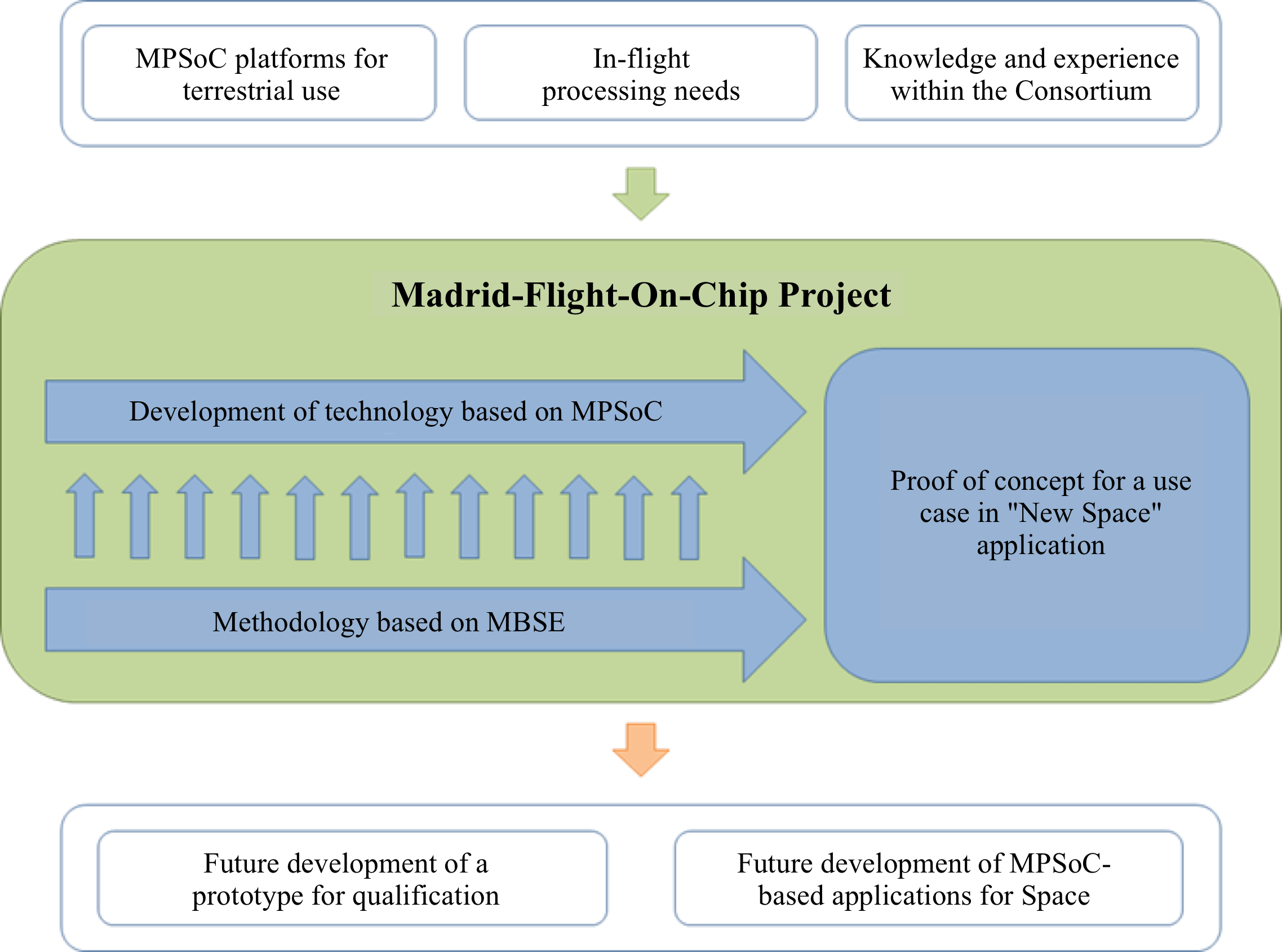The Madrid Flight on Chip (MFoC) project, an initiative supported by the Comunidad de Madrid and the European Union, is set to revolutionize the future of aerospace satellite systems. The project is dedicated to making satellite missions more cost-effective, quicker to develop, and extremely reliable.

An important consortium is on board with the project, involving SENER Aeroespacial (the main aerospace partner), small and medium-sized technological startups, and excellent Research Centers (UC3M and IMDEA Software). Additionally, there are great industrial partners – GENERA, CENTUM, The REUSE Company, and MARM.
Innovative approaches are being applied to new-generation System-on-Chip designs, to improve satellite development and unlock new possibilities in aerospace systems. They are also exploring modern hardware architectures, including FPGAs and commercial multi-core processors, to overcome aerospace challenges such as energy consumption and cosmic radiation resistance.
The collaboration among these relevant project participants will strengthen Madrid’s position in the mini-satellite market by applying “Model-based Systems Engineering” (MBSE) and Multiprocessor System On Chip (MPSoC) technology. It will showcase small satellite capabilities and secure an important position in the “New Space” industry.

El proyecto Madrid Flight on Chip (MFoC), una iniciativa respaldada por la Comunidad de Madrid y la Unión Europea, está listo para revolucionar el futuro de los sistemas de satélites aeroespaciales. El proyecto se dedica a hacer que las misiones de satélites sean más rentables, rápidas de desarrollar y extremadamente confiables.

Un consorcio importante participa en el proyecto, que incluye a SENER Aeroespacial (el principal socio aeroespacial), pequeñas y medianas empresas tecnológicas, y excelentes Centros de Investigación (UC3M e IMDEA Software). Además, cuenta con excelentes socios de la industria: GENERA, CENTUM, The REUSE Company y MARM.
Se están aplicando enfoques innovadores en los diseños de nuevos Sistemas en un Chip, con el objetivo de mejorar el desarrollo de satélites y desbloquear nuevas posibilidades en sistemas aeroespaciales. También están explorando arquitecturas de hardware modernas, como FPGAs y procesadores comerciales multinúcleo, para superar desafíos aeroespaciales como el consumo de energía y la resistencia a la radiación cósmica.
La colaboración entre estos relevantes participantes del proyecto fortalecerá la posición de Madrid en el mercado de mini-satélites al aplicar la tecnología de “Ingeniería de Sistemas basada en Modelos” (MBSE) y Multiprocesadores en un Chip (MPSoC). Mostrará las capacidades de los pequeños satélites y asegurará una posición importante en la industria del “New” Space.

Newsletter
Subscribe to our Newsletter

